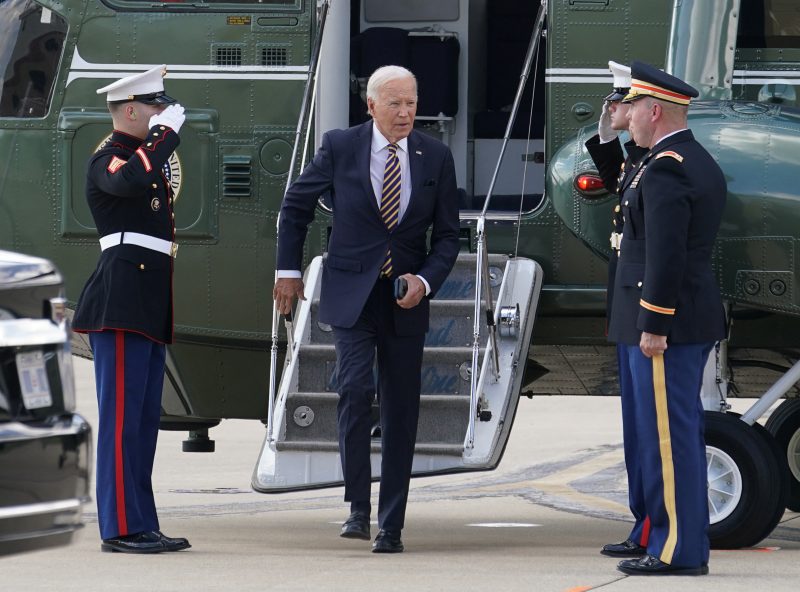The recent United Nations General Assembly meeting held in New York has brought to light the escalating tension in the Middle East, particularly in the wake of President Joe Biden’s last significant appearance at the U.N. meeting. The region, already embroiled in various conflicts and political upheavals, has witnessed a surge in unrest, with concerns mounting over the potential for further destabilization.
One of the key issues that dominated discussions at the U.N. meeting was the longstanding conflict between Israel and Palestine. The decades-old conflict, marked by a history of violence and failed peace negotiations, has once again come to the forefront, drawing international attention and calls for renewed efforts at finding a lasting solution. The recent outbreak of violence in the Gaza Strip earlier this year highlighted the fragile nature of the situation and the urgent need for a comprehensive peace plan to address the root causes of the conflict.
In addition to the Israel-Palestine conflict, the ongoing civil war in Syria continues to pose a significant humanitarian challenge. The conflict, now in its eleventh year, has resulted in widespread destruction, displacement, and loss of life, with millions of Syrians suffering from the devastating consequences of the war. Efforts to broker a political solution to the conflict have so far been unsuccessful, further exacerbating the suffering of the Syrian people and adding to the complexity of the situation in the region.
The rising influence of Iran in the region has also been a cause for concern among policymakers and analysts. Iran’s support for proxy groups across the Middle East, its nuclear ambitions, and its involvement in regional conflicts have all contributed to the growing tensions in the region. The recent U.N. meeting saw renewed calls for Iran to engage in constructive dialogue and abide by international norms, in order to prevent further escalation of hostilities and promote regional stability.
Furthermore, the conflict in Yemen, often described as the world’s worst humanitarian crisis, remains unresolved despite international efforts to broker a ceasefire and facilitate peace talks between warring parties. The ongoing conflict, fueled by regional rivalries and geopolitical interests, has caused immense suffering to the Yemeni people, with millions facing food insecurity, disease, and displacement. The urgent need for a political solution to the conflict was emphasized at the U.N. meeting, highlighting the importance of addressing the root causes of the crisis and reestablishing peace in the region.
Amidst these challenges, the U.N. meeting served as a platform for world leaders to reaffirm their commitment to upholding international law, promoting human rights, and seeking diplomatic solutions to conflicts in the Middle East. The complex nature of the issues facing the region underscores the importance of multilateral cooperation and dialogue in addressing the root causes of conflict and advancing peace and stability in the Middle East.
As global attention remains focused on the Middle East and the various crises unfolding in the region, the U.N. meeting has once again highlighted the pressing need for concerted international action to address the root causes of conflict, promote dialogue and reconciliation, and ensure the protection of human rights and humanitarian principles. Only through sustained diplomatic efforts and a commitment to multilateral cooperation can the international community hope to bring about lasting peace and stability in the Middle East.

